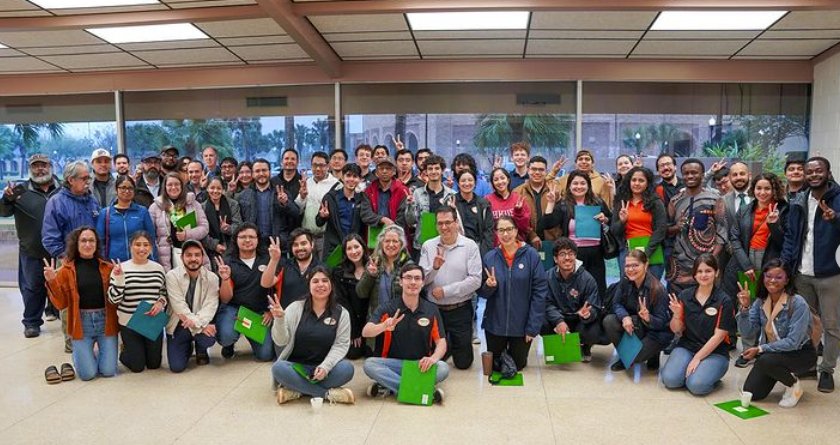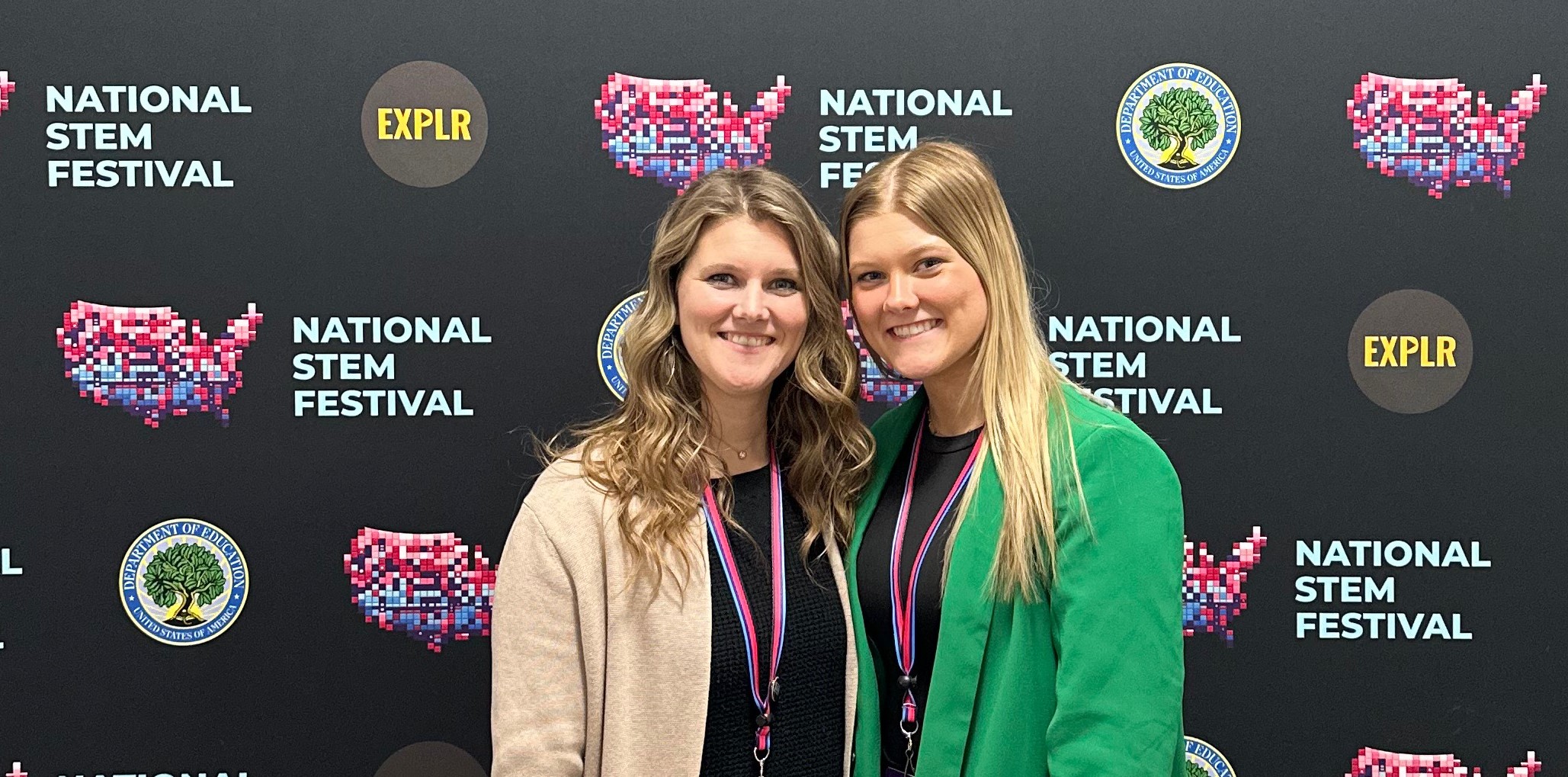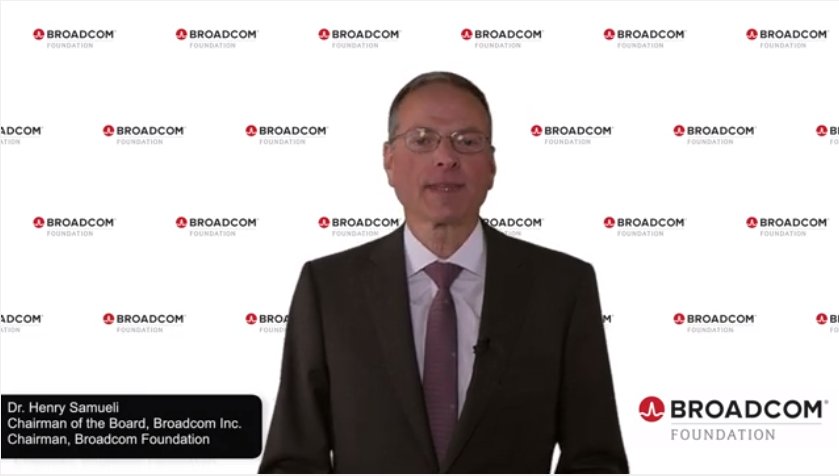Fostering Digital Literacy at Rio Grande Valley Science Fair – Academics Offer Insight into Importance of Coding in Underserved Communities
Program Highlights
2024 Rio Grande Valley Science and Engineering Fair Middle School Project Judges
2024 Rio Grande Valley Science and Engineering Fair Middle School Project Judges
Promoting digital literacy and coding education is essential for preparing students for future opportunities in STEM fields. By integrating coding programs, leveraging community resources, and adopting innovative teaching approaches, communities can inspire and empower the next generation of coders and innovators.
Broadcom Foundation Chief Financial Officer Maria Wronski and Program Coordinator Melissa DeGandi traveled to the University of Texas Rio Grande Valley (UTRGV) to serve as judges for the Broadcom Coding with Commitment® award at the 2024 Rio Grande Valley Regional Science and Engineering Fair, awarded to Yareli Gonzalez and Leila Gomez, middle schoolers whose project Guardian Alert creatively coded a device that would signal when a child strayed beyond 50 feet from the parent.
Observing the growing trend among Rio Grande middle school students to integrate coding, physical computing, or computational thinking into their projects, Wronski and DeGandi set out to explore how this community has promoted digital literacy and encouraged underserved students to bring coding projects to the science fair.
“We decided to explore what factors contributed to the high percentage of coding projects present at the fair.” said Wronski.
UTRGV Computer Science Professor Emmett Tomai and Applied Mathematician Professor Cristina Villalobos shared their teaching model and approaches to integrating coding programs in their community, including showing students the practical applications of coding and fostering students’ enthusiasm for making meaningful contributions. Both professors highlighted the importance of coding education both in and out of school.
“Here at the University, we have three summer outreach programs that teach weeklong hands-on programming to students that include computer science activities using Scratch, Python, and robotics,” said Professor Tomai, who transitioned from web development to academia. “We also added a project component to the 2023 summer camp.”
Wronski and DeGandi learned that students work in groups for a more interactive experience, taking turns at the keyboard to mitigate different experience levels. Camp activities are designed to be highly accessible and engaging, and by including the peer to near-peer assistance, the overall experience pays off with high completion. Professor Tomai recommends more near-peer mentor involvement (e.g., college students). He added, “There is no substitute for individual attention and the comfort of having someone you relate to as a guide.”
In addition to the university programs, Rio Grande librarian Elizabeth Ramirez runs code clubs for elementary kids in a community venue that brings children and families together. She emphasized that local libraries play a key role in nurturing coding skills among young learners.
“Broadcom Foundation promotes coding initiatives like those at UTRGV and afterschool code clubs like that at the Rio Grande libraries because they provide an intentional, consistent environment for optimal project-based learning time necessary for a young person to develop a foundational skill such as coding,” noted Wronski. “Rio Grande’s community education models in coding are worth emulating by other science fairs and STEM Ecosystems.
Broadcom Foundation characterizes digital literacy as the confident use of the full range of digital technologies, including some basic knowledge of coding. Coding enables young people to become creative STEM problem solvers who can think critically, communicate, collaborate, be persistent, and become experts in the digital world.
Broadcom Foundation encourages interested communities to tap into Raspberry Pi Foundation’s CodeClub.org that offers free resources to help anyone learn how to code and teach basic coding. Visit the Projects site to get started. For information on starting a Code Club in your community, visit codeclub.org.

